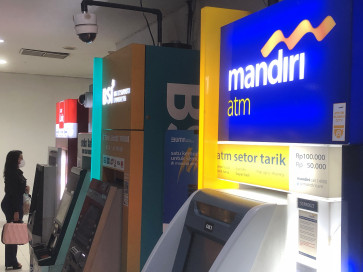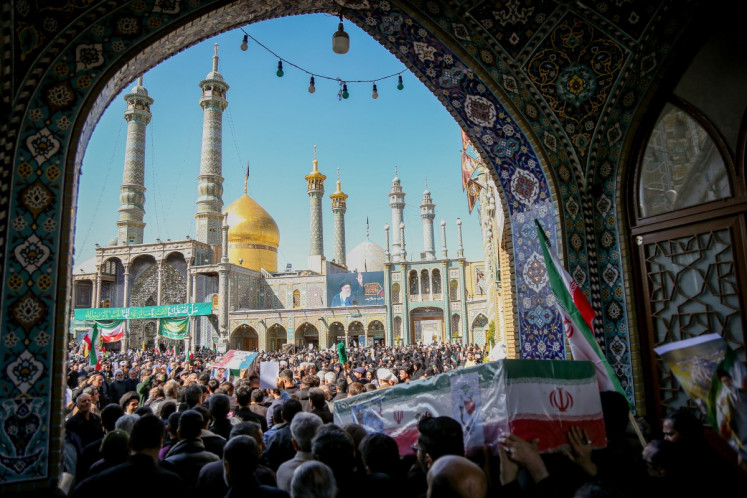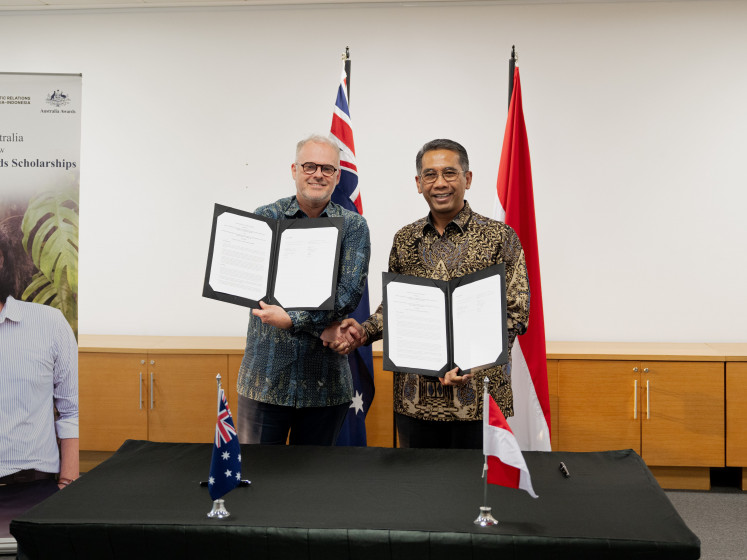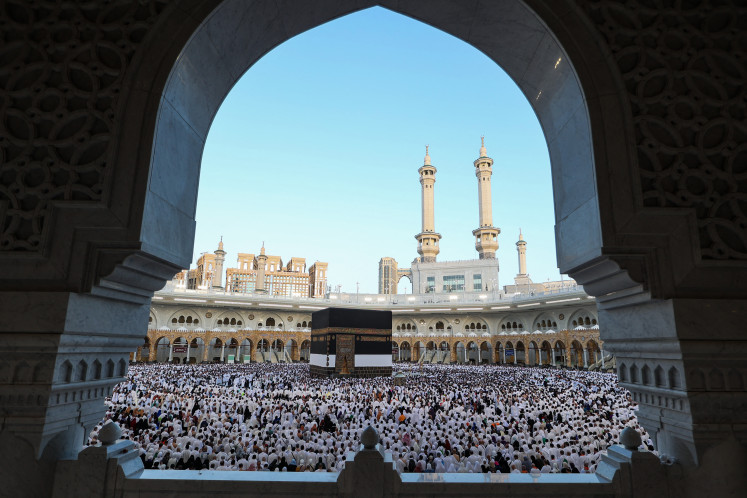Popular Reads
Top Results
Can't find what you're looking for?
View all search resultsPopular Reads
Top Results
Can't find what you're looking for?
View all search resultsPlaywright N. Riantiarno is a visionary with a mission
N
Change text size
Gift Premium Articles
to Anyone
N. RIANTIARNO: (JP/Arief Suhardiman) Rumah Kertas (1977), Teater KOMA's first production, is still remembered as a poetic, bittersweet story of the love between prostitute Kiki and destitute Kuku.
Kiki gets syphilis, which eventually blinds both her and her lover. They find some refuge in a slum community, but are then evicted by the security officers serving a brutal despot. This play caught the attention of the public not only because of its impeccable and impressive presentation, but also due to its storyline.
Since then, this group led by actor, playwright and director N. Riantiarno, has become the first car in the train of modern Indonesian theater, connecting with the previous powerhouses of theater: Rendra's Bengkel Teater; Teguh Karya's Teater Populer; Suyatna Anirun's Studi Klub Teater Bandung; Arifin C. Noor`s Teater Kecil and Putu Wijaya's Teater Mandiri.
Teater KOMA, however, is still with us. In January, the troupe presented the complex humanitarian tragedy Kenapa Leonardo, its 112th production to date.
The script for the play What about Leonardo?, written by Evald Flisar of Slovenia, was translated by Rangga Riantiarno.
It vividly sets forth the sometimes bloody conflicts emerging when the theories and practices of neurology, psychiatry, psychology and politics collide in society.
In the years between his first production and his latest one, N. Riantiarno, who is best known as Nano, has expanded his theatrical ambitions in collaboration with Ratna Riantiarno.
Starting with script writing, Nano has built his career through directing, holding workshops for actors, leading discussions, translating and developing foreign scripts for performances, and organizing productions on the basis of a strong art performance management foundation.
Throughout those decades, as well, Teater KOMA played to and interacted with its increasingly larger audiences to become strongly established as an important entity in Indonesian theater. Teater KOMA's performances generally have two-week runs and draw in audiences made up of people of all ages and from all walks of life.
However, it was never easy for any theater troupe to make headway in the repressive atmosphere of the late 1970s through to the late 1990s. The banning of performances and interrogation of playwrights and directors was a matter of course for any brave soul who, like Nano, took up the banner of dissidence in their art.
Nano faced this risk several times, and has used these experiences to more finely hone his artistic intensity toward a greater sense of purpose.
When Evald Flisar, the writer of the play What about Leonardo? most recently performed by Teater KOMA, says that "dramas with dissident themes are a thing of the past", he is clearly not speaking of Indonesia.
Although Nano's most recent production, Kenapa Leonardo? could be perceived, more or less, as a turning point, opening up a new and surprising panorama for this theater master's ongoing and sustainable creative exploration, Nano, clearly, is still traveling the same road of disagreement with established systems and fighting the same human rights battles.
"Soeharto is still of interest to me", he said in reference to the recently deceased dictator, whose legacy of social engineering and systemic structural violence continues to wreak havoc in Indonesia, during a discussion at the H.B. Yassin Literary Documentation Center on Feb. 8.
This is a clear indication that dissident thought will continue to play a role in theater circles here for many years to come; after all it is only through the questioning and re-questioning of the status quo that reform has been possible.
Nano, who was born in Cirebon on June 2, 1949, became involved with theater in his hometown when he was only 16 years old. In 1967, he graduated from high school and entered the Indonesian Theater Academy, ATNI, in Jakarta. In 1971, he continued his studies at the Driarkara School of Philosophy, also in Jakarta.
Along with Teguh Karya, a noted Indonesian dramatist, and a number of other artists, Nano helped establish Teater Populer (1968), in which he matured as an actor under the tutelage of Teguh Karya.
A few years later, Nano left Teater Populer, and in 1975, traveled extensively throughout Indonesia to observe folk theater and traditional art performances.
These journeys turned out to have a massive impact on his own art. Drawing on this wealth of experience, his own innate abilities and the conviction that he must "create his own kingdom" of theatrical exploration, Nano established Teater KOMA on March 1, 1977.
Building a Vision
After participating in the International Writing Program in Iowa City, Iowa, the United States, for six months in 1978, Nano began presenting theatrical productions that he readily acknowledged as being a mix of political satire, veiled criticism, boisterous music, stylized acting, and generally exuberant performance.
He called it "festive theater"; which translated into entertainment with a capital "E". As it turned out, this eclectic recipe was greeted with delight by the middle and upper class public in Jakarta, who were always on the lookout for entertainment, but not always much interested in theater.
When Maaf, Maaf, Maaf (Sorry, Sorry, Sorry) hit the stage in 1978, and JJ came along in 1979, audiences were more than willing to sit through three hours of theater at a time, and kept the theater seats packed night after night throughout the seven-day runs of these plays.
Nano's tinkering with Indonesia's theater paradigm then solidified even further with Bom Waktu (Time Bomb) (1982) and Opera Ikan Asin (Salted Fish Opera), his adaptation of Bertold Brecht's The Threepenny Opera (1983).
It should be noted here -- as Nano was to pontificate on in his later works -- this writer-director's idea of opera is a world apart from the opera offered by Italy and Germany.
His reference was most predominantly focused in the dramas and stage shows, complete with orchestras and listener friendly ditties, popular worldwide in the 1920s and 1930s.
Nano's broad and in-depth knowledge of the history of theater and the wealth of variety existing in this artistic mode in both the East and the West provided him with the perfect jumping off place for the transformation of modern Indonesian theater.
While some may criticize Nano for being influenced by the glitz, glamour and material concerns of theater, what is clear is that he is a visionary; someone who could see the hunger for accessible and meaningful theater in the larger public.
Even if he did, indeed, borrow a little along the way from the old burlesque or caf










